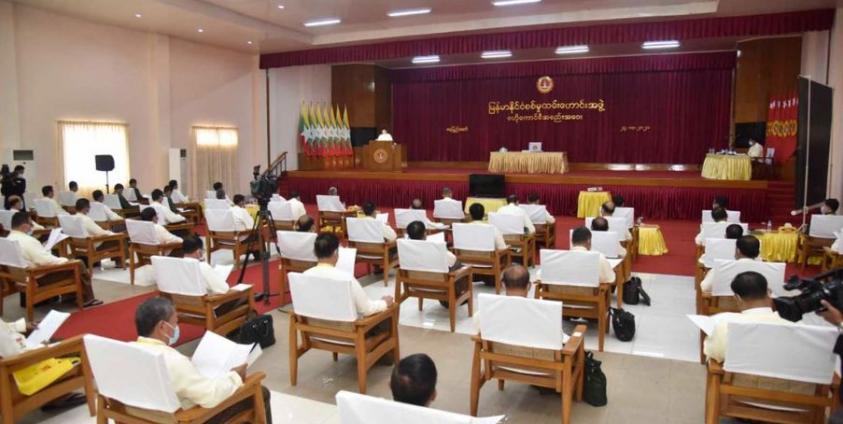In response to a string of military setbacks and growing resistance nationwide, the Military Council has pragmatically initiated the recall of veterans into military service in Mon State, highlighting its depleted manpower.
Over the past three years since the coup, the Military Council has confronted numerous armed resistance movements across the country, resulting in the loss of fortified bases as well as many outposts.
In response to these setbacks, coup leader Min Aung Hlaing enforced the law on February 13th, allowing for the recall of veterans for military service. This law, enacted during the tenure of former Junta leader Than Shwe, had remained dormant for an extended period.
A veteran stated that individuals recently summoned by the Junta are those who retired from military service within the past three years, with those called up required to report by May 1st.
According to the provisions of the Law on Reserve Forces, veterans are permitted to be recalled to serve in the military for an additional five years following their retirement, with the Commander-in-Chief having the authority to enlist them into reserve forces at his discretion.
The law specifies that if deemed necessary for the nation's welfare, the Commander-in-Chief holds the power to extend the service period of reserve forces beyond five years. Furthermore, veterans recalled for re-enlistment are permitted to reuse the uniforms and ranks from their previous service.
Veterans summoned for military duty who fail to report to the designated time and place before the deadline, may be subject to a penalty of up to three years in prison, a fine, or both.
Political and military analyst U Than Soe Naing expressed his view that the Junta’s manpower shortage has become more and more obvious, and resorting to desperate measures like recalling veterans is not the appropriate solution.
"Within the designated formations, the Junta commands approximately 500 battalions.
However, the average active personnel per battalion stands at a mere 120. Of these, only about 70 are deemed combat-ready. Ideally a battalion should muster around 700 personnel, underscoring the acute shortage in manpower faced by the Junta. Coercing those who have resigned due to their unwillingness to serve further poses not just moral peril, but also risks diminishing military efficacy. In my opinion, such measures will not bolsterbut rather potentially erode the Junta’s military capabilities”, he said.
A report issued by the Institute for Strategy and Policy - Myanmar (ISP-Myanmar), a reputable research institution, revealed that the Junta had outlined plans to assemble battalions averaging between 720 and 750 personnel, comprising 30 to 60 officers. Howeverfollowing the expansion of formations, it was observed that none of the battalions conformed to these prescribed structural norms.
Furthermore, prior to the coup, the Junta's combat-ready military force numbered approximately 160,000. However, according to the ISP-Myanmar report, which references additional research data, it appears that the current strength has significantly decreased to under 100,000.
The Junta, known for its severe penalties against deserters, has unexpectedly been granting pardons and readmitting deserters into their ranks. This shift in policy comes as its forces have been significantly depleted by the strong resistance movements triggered by the coup.
In early December, the Junta made an announcement declaring that deserters returning to the military would be welcomed and assigned to nearby regiments. On February 10th, the Junta activated the conscription law, enabling the drafting of citizens into the military. The Junta’s Minister of Defense stated that plans for recruiting conscripts are being expedited, and training centers are also being prepared.







